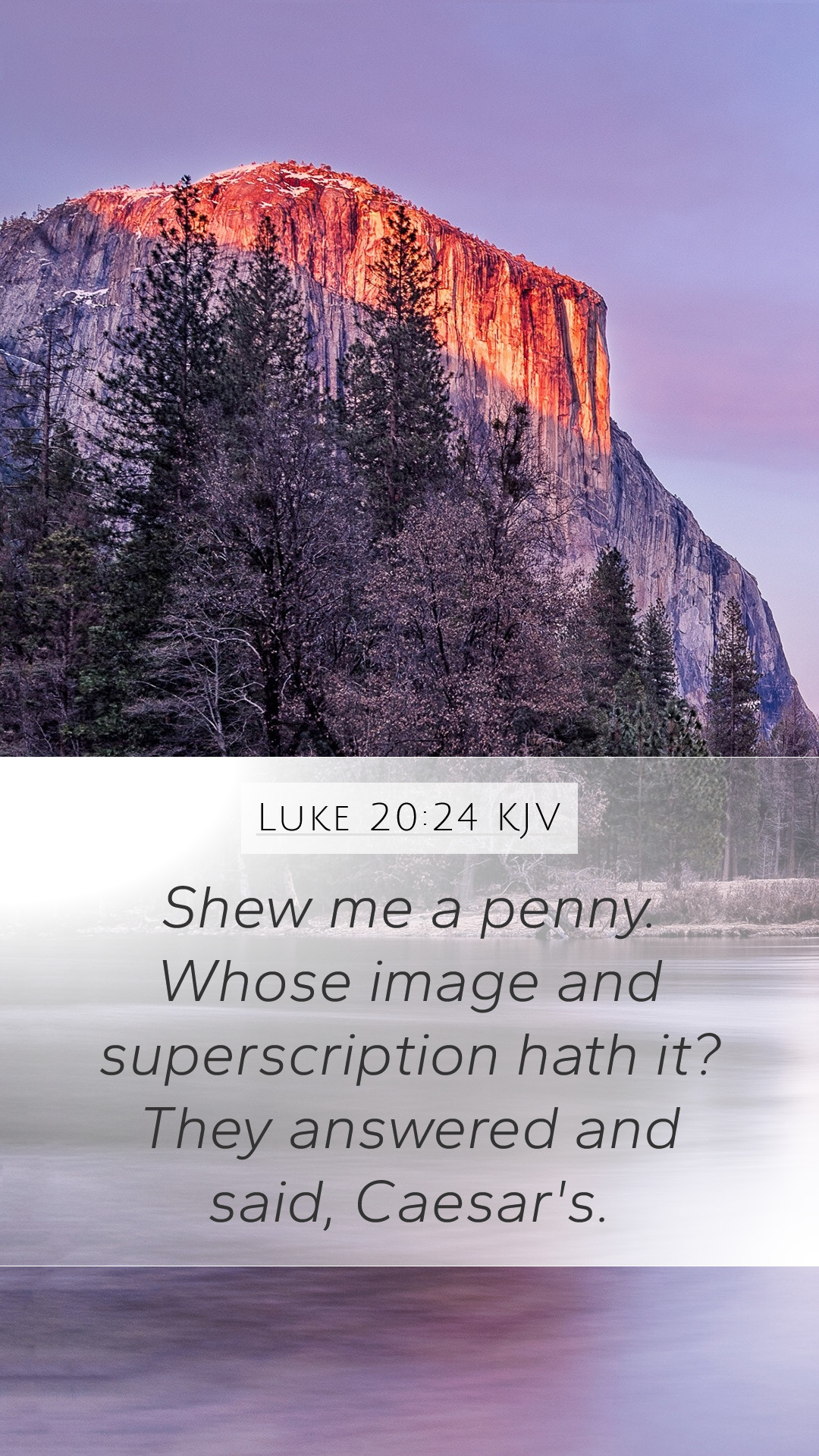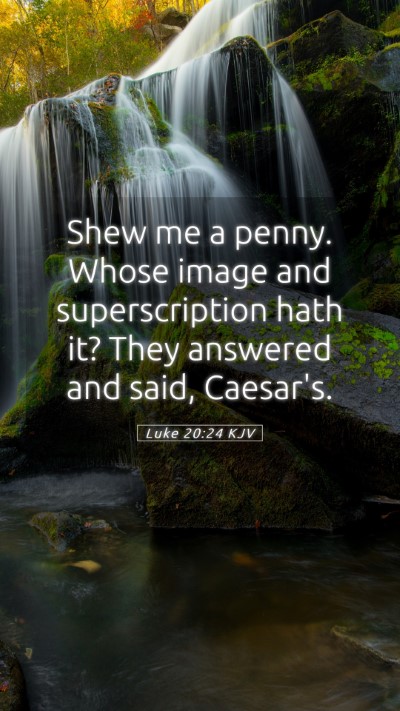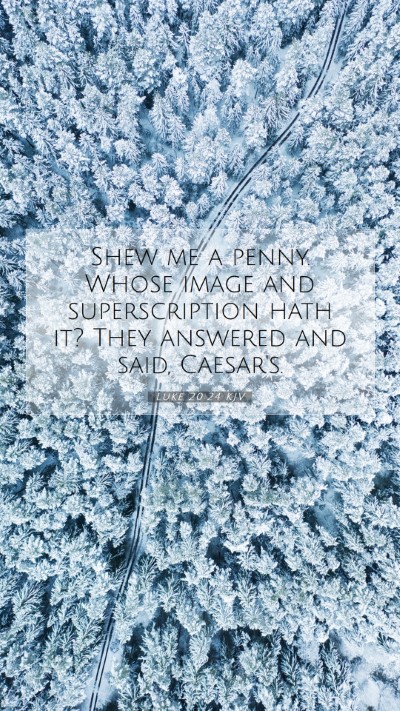Bible Verse Meaning: Luke 20:24
Verse: "Show me a denarius. Whose likeness and inscription has it?" They answered and said, "Caesar's."
Overview
This passage from Luke 20:24 presents a profound dialogue between Jesus and the Pharisees, illustrating significant themes concerning authority, obligation, and the relationship between spiritual and secular responsibilities. Through this inquiry about the denarius, Jesus masterfully navigates the political and religious tensions present during His ministry.
Contextual Background
The context of this verse is essential for understanding its implications. Jesus is being tested by the Pharisees and Herodians—a coalition that typically stood at opposite ends of the political spectrum. Their objective was to trap Jesus into saying something that could be used against Him in the eyes of the Roman authorities or the Jewish populace.
Commentary Insights
-
Matthew Henry's Commentary:
Henry emphasizes that Jesus’ question about the denarius highlights the clear distinction between earthly and heavenly authority. The denarius bore Caesar's image, symbolizing that it belonged to him, yet spiritual matters transcend earthly dominion. Henry's analysis invites believers to recognize their dual citizenship: one in the kingdom of God and the other on Earth.
-
Albert Barnes' Notes:
Barnes points out the strategic brilliance of Jesus in this interaction. By asking whose likeness is on the coin, He turns the trap set by the Pharisees back on them, leading them to acknowledge Caesar’s authority without directly challenging Jewish law or Roman power. This act illustrates the wisdom of Christ, who engages in a response that avoids direct confrontation while delivering profound teaching.
-
Adam Clarke's Commentary:
Clarke elaborates on the significance of the denarius as reflecting societal obligations and taxation. He interprets Jesus’ directive to "render to Caesar the things that are Caesar's, and to God the things that are God's" as a clear instruction to uphold civic duties while prioritizing one’s responsibilities to God. Clarke’s insights emphasize that all authority ultimately belongs to God, and human laws must not overshadow divine commandments.
Key Themes and Application
This verse invites believers to reflect on several key themes:
- Authority: Understanding the balance between civil obligation and spiritual fidelity.
- Dual Citizenship: Acknowledging that while Christians are part of earthly kingdoms, their ultimate allegiance is to God's kingdom.
- Wisdom in Discourse: Learning to engage in public dialogue without compromising one’s core beliefs, as Jesus did.
Practical Implications
For modern believers, this verse provides a framework for evaluating their own responsibilities in society and maintaining integrity in both spiritual and secular realms. It encourages deep reflection on how Bible verses can shape our understanding of ethical living amidst societal pressures.
Cross-References
- Matthew 22:17-21: A parallel account illustrating Jesus' response regarding taxes and authority.
- Romans 13:1-7: Paul's teaching on submitting to governing authorities.
- Mark 12:14-17: Another perspective on the question posed to Jesus about paying taxes to Caesar.


